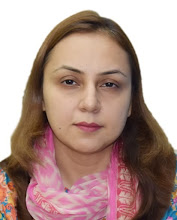Date: 9th Nov 2014
Course: CIE PDQ DTWDT
(Diploma in Teaching with Digital Technologies)
My five week
online course about Diploma in Teaching with Digital Technologies ends
today. It’s been a complete learning experience. The last resource shared
was about reflection, how do we reflect, what key elements to consider while
reflecting, models of reflection, theories of reflection etc. It opened doors
of reflection to me. Reflection is important to me as a teacher, a
trainer, an observer and as a program leader in many different aspects. I
am in a position where I can provide support, scaffold ideas, build and extend
prior knowledge and understanding, guide and assist my candidates on the
course, teachers etc.
What I did
not know was that reflection is not only about what has gone well and what didn’t,
it has to go beyond. The four models shared about reflection helped build on my
idea and understanding about reflection. Donald Schon’s model describes two
kinds of reflection, reflection in action and reflection on action. Reflection in
action means making changes, amendments to plans during the activity in case of
unexpected events, while reflection on action is reviewing and making changes after
the activity has ended. He further says that professional development begins
when we start viewing our experiences critically, we doubt our own decisions
thinking we could have done something better and different, reflecting on these
doubts helps develop new ways of thinking, encourages and motivates us to
explore other possible solutions.
Terry Borton
developed a simple model of reflection. It is based on three questions what? So
what and now what? What helps describes what has happened, what did I do, what
was my role etc, so what is the analysis stage, so what have I learnt from this?
Now what is the synthesis stage, we build on our previous questions, focusing
on questions like what do I need to do, looking for consequences of my actions,
how I need to improve etc.
Stephen
Brookfield developed a model of four critical lenses through which we can view
our teaching and practices. These four lenses are my own lenses (involves self-reflection
though journal writing etc), learners’ lenses (use our learners feedback
through interviews, assessments to inform our teaching), colleagues’ lenses (look
to our colleagues for feedback and guidance from peers) and the lenses of
theory (engaging with relevant research and reading).
David Kolbs developed
a learning cycle to help reflect on our experiences, these comprise of four
stages concrete experience (first experience of using a resource), reflective observation
(reflect on the first experience, how did it go), abstract conceptualization
(draw conclusion and learn from experience) and active experimentation (how to
implement what we have learnt).
Graham Gibs
described a six stage cycle for reflection which begins from the description
stage (what happened), feeling stage (how we felt about the event),
evaluation(what was good and bad), analysis stage (explore experience in
detail), conclusion(what else could have I done), action plan (how will I do it
differently).
The one
model I like the most of these five is the one shared by Stephen Brookfield,
the four lenses. I could use this model while reflecting on my teaching and
learning practices. It could begin with reflecting on the impact of using
technology in our early year classrooms upon learners, impact on teachers how
they use and see technology integration, discussion with my colleagues, make
changes in the light of the feedback received.
We could introduce these models of reflection in our schools, discuss with teachers and let them reflect on their practices using any of these models. We are actually following the
model to some extent in our schools but could be streamlined further.
One last
thing that I liked about the interactive resource shared was thee levels of reflective
writing which are descriptive, dialogic and critical reflective writing. We
need to incorporate all three while writing a reflection. Beginning with
describing what has happened and why it happened, thinking about reasons for
making decisions, considering future actions, exploring thoughts, feelings, to critically arguing about it (thinking of
moral, social and ethical factors) , followed by demonstrating how has this
impacted our own practices.
A dive into
reflection which I thoroughly enjoyed, what I know now is that without reflection high quality professional development is not possible.
Sheeba Ajmal

Comments
Post a Comment